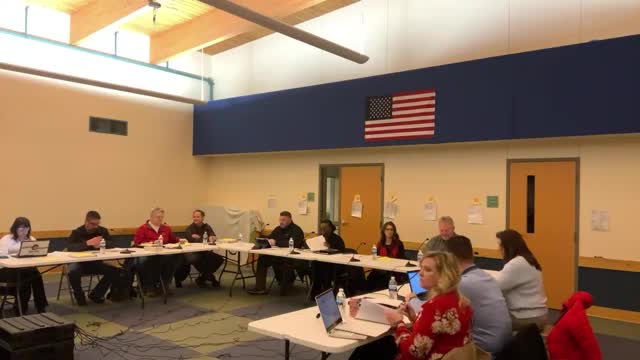District highlights three open‑enrollment bills and IEP parental consent bill under discussion at state legislature
Get AI-powered insights, summaries, and transcripts
Subscribe
Summary
Administration briefed the board on three open‑enrollment bills (House Bill 711, Senate Bill 70 and Senate Bill 215) and a separate IEP parental consent bill (House Bill 477), summarizing provisions, committee status and potential district impacts.
District administrators told the Hannibal 60 Board of Education that multiple bills under consideration at the state Capitol could affect student transfers, charter participation and special-education procedures.
Why it matters: Changes to open‑enrollment law or parental-consent rules for individualized education programs (IEPs) could alter enrollment patterns, transportation funding responsibilities and special‑education service delivery for the district.
What administrators reported: The administration summarized three open‑enrollment proposals: - House Bill 711: would permit nonresident transfers to other public districts with procedures for transfers, non‑discrimination provisions, comparable special‑education services, a transportation reimbursement fund for eligible students, and annual reporting. HB 711 is an opt‑in bill for districts; the administration said it had passed committee and was heading to the House floor. - Senate Bill 70: described by staff as an omnibus measure with many provisions; among the education provisions, SB 70 would allow nonresident enrollment, limit transfers into a single nonresident district per year and include a one‑year commitment to enrolled courses. The administration said SB 70 would also include charter schools and remained in the Senate education committee. - Senate Bill 215: staff said it would require mandatory participation by districts in open enrollment; the bill was also in the Senate education committee.
The administration characterized key differences among the three measures as whether district participation is voluntary or mandatory and whether charter schools would be included.
IEP parental consent bill: Administrators also described House Bill 477, which the staff summarized as requiring written parental consent for initial IEP placements, placement changes and significant service removals; establishing partial‑agreement timelines for unresolved disputes; requiring the state education department to create a standardized consent form; and giving parents the right to observe proposed programs or classrooms before consenting. The bill was under discussion in the House education committee and — if enacted — would have a delayed effective date (the administration reported July 1, 2026).
Budget outlook note: Administrators reported results of an informal survey of lobbyists and Capitol observers about the state budget outlook: respondents described a mix of near‑term withhold concerns and longer‑term risk if surpluses run down.
Ending: Administrators urged board members to contact legislators about potential impacts on the district and said they would continue monitoring the bills and report changes back to the board.
